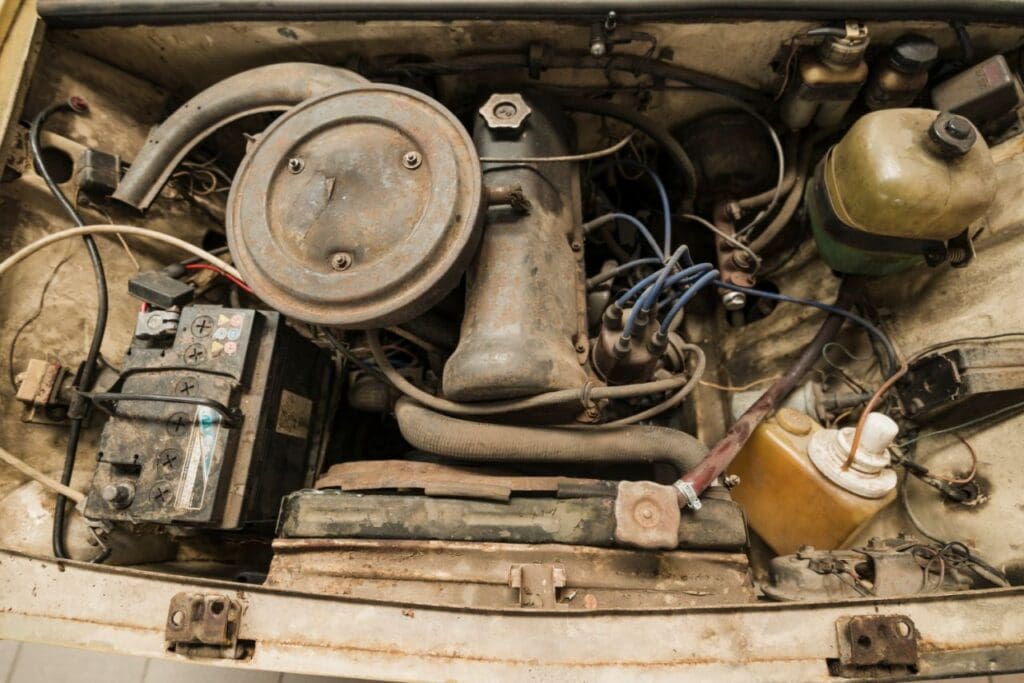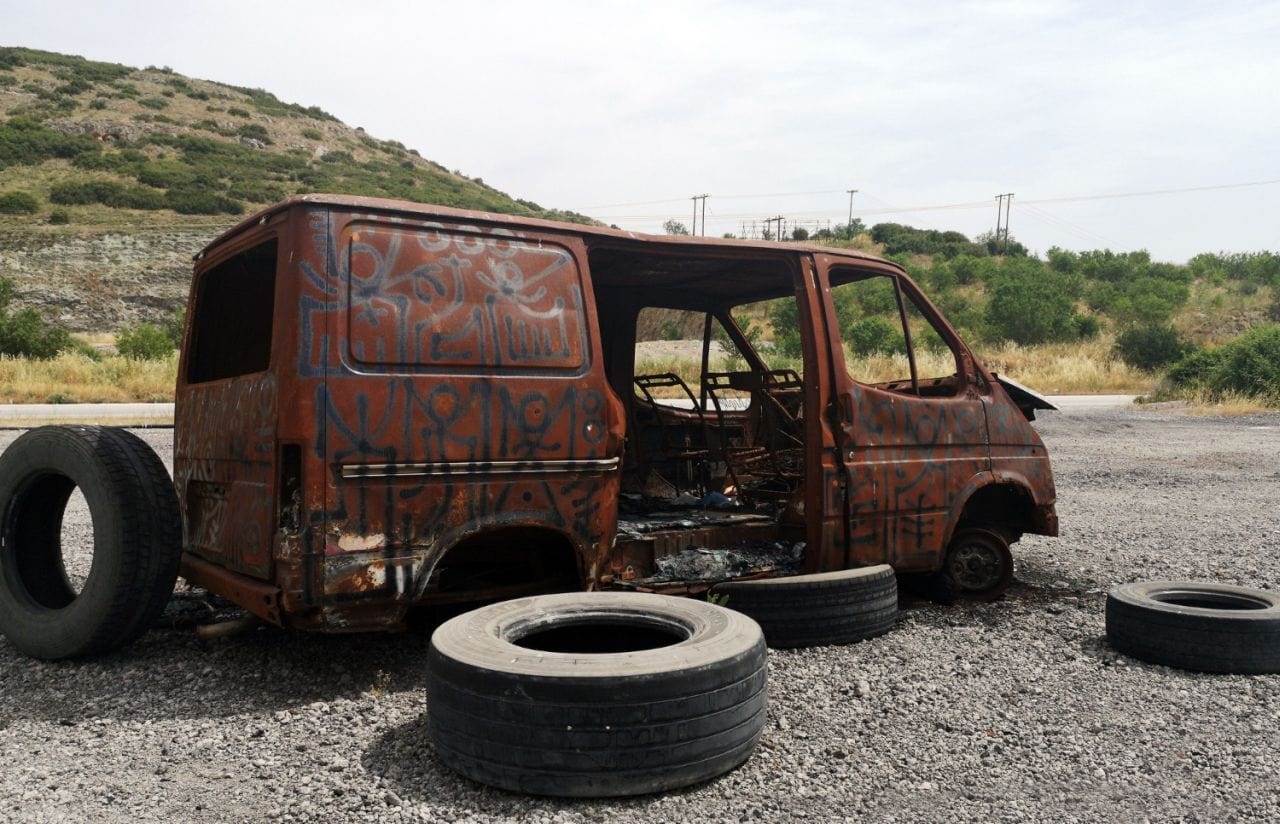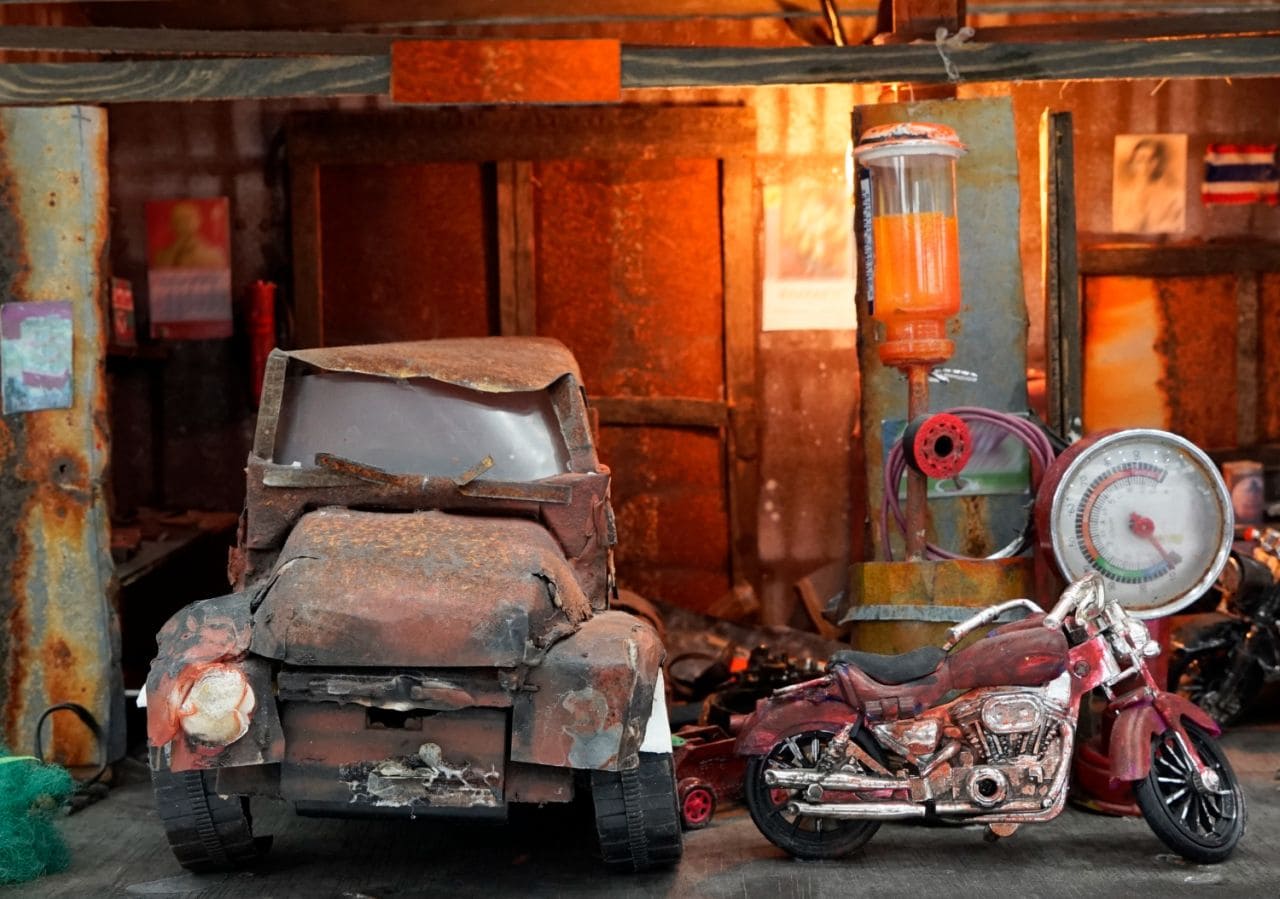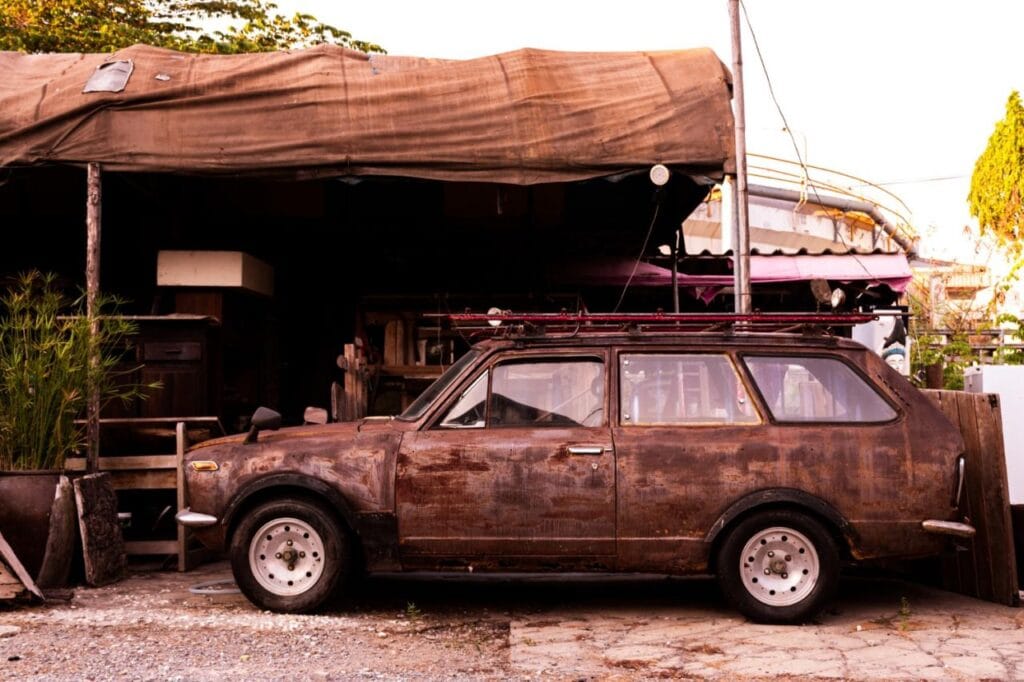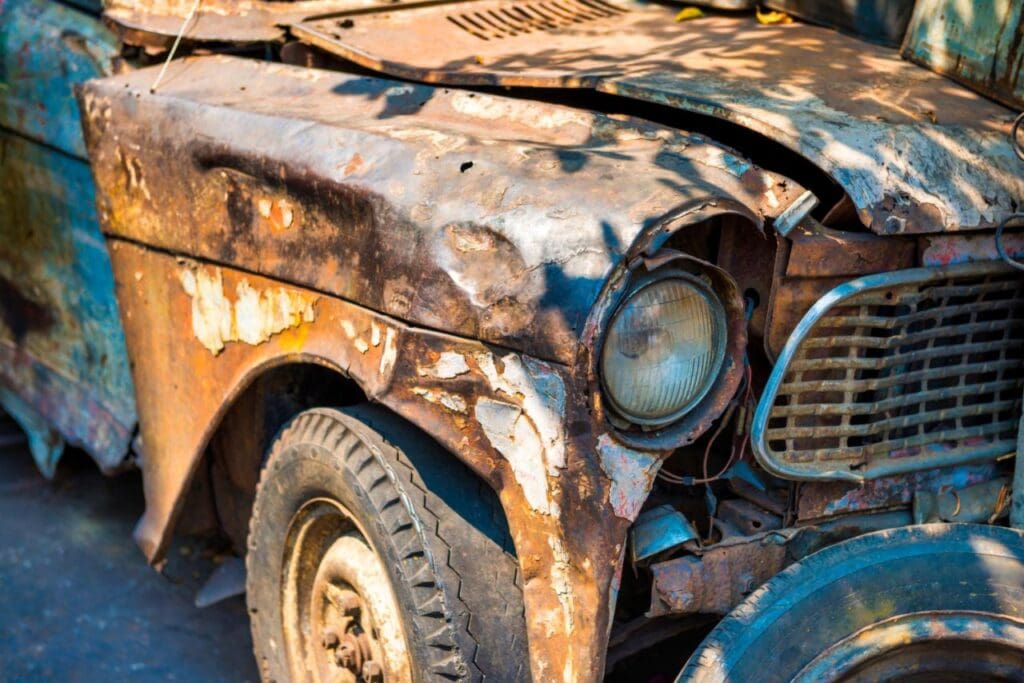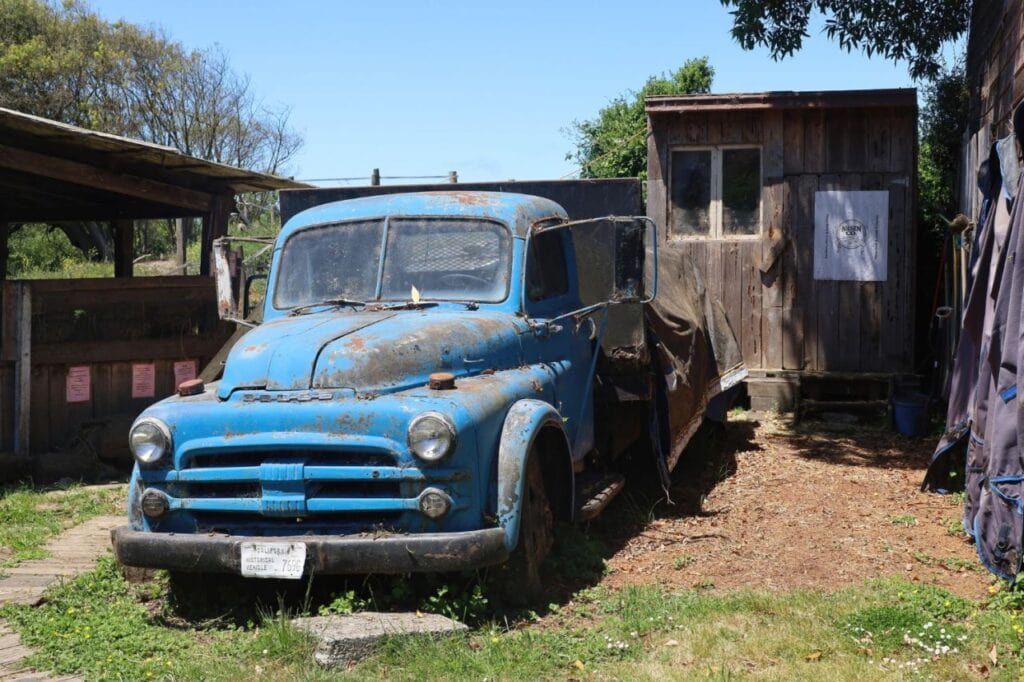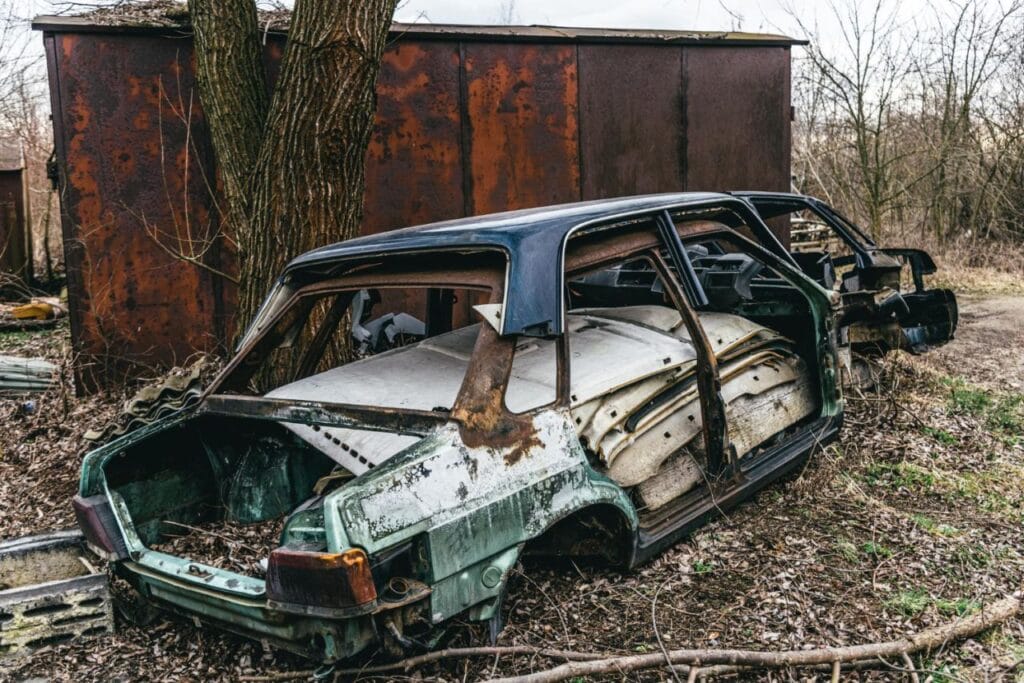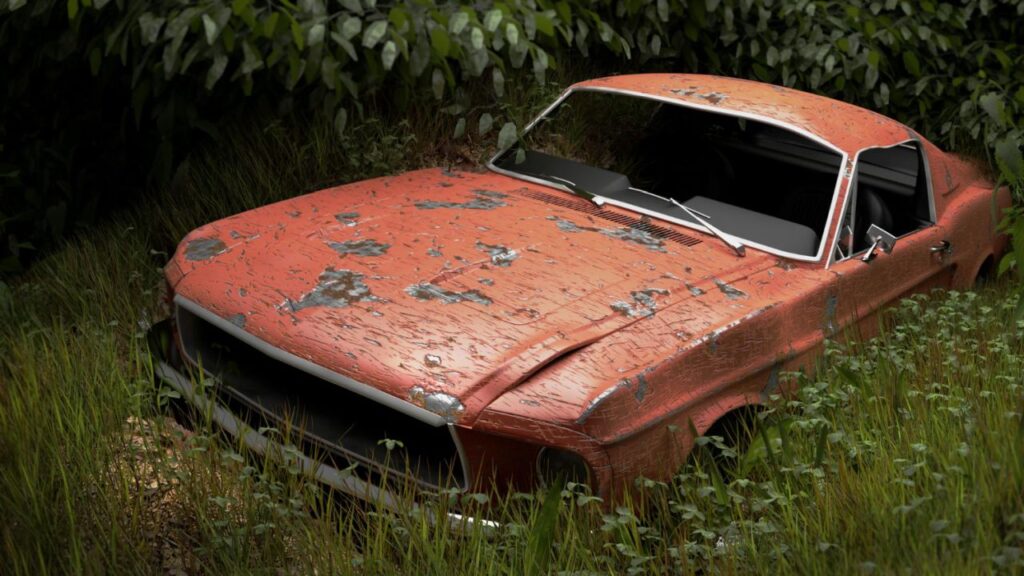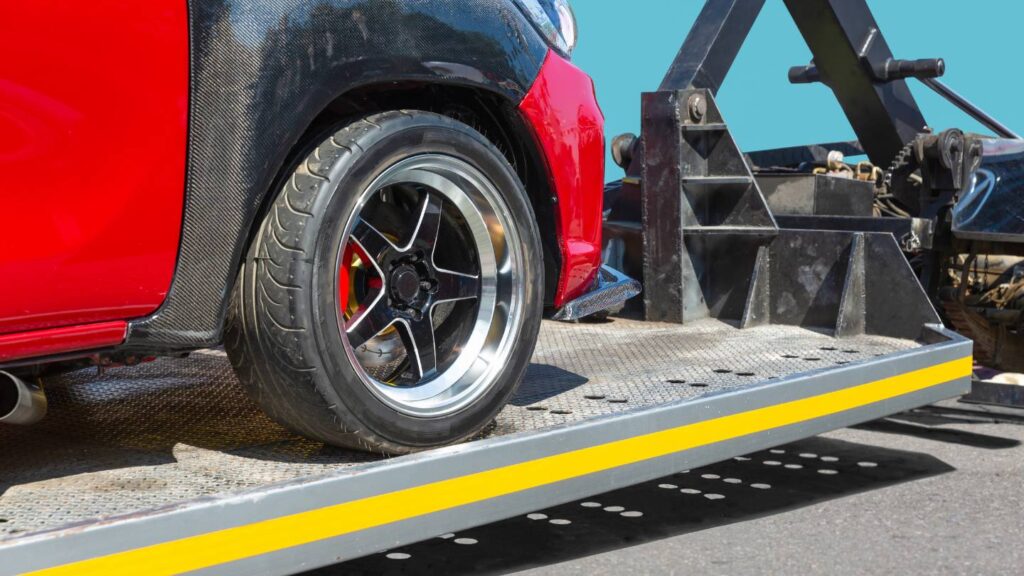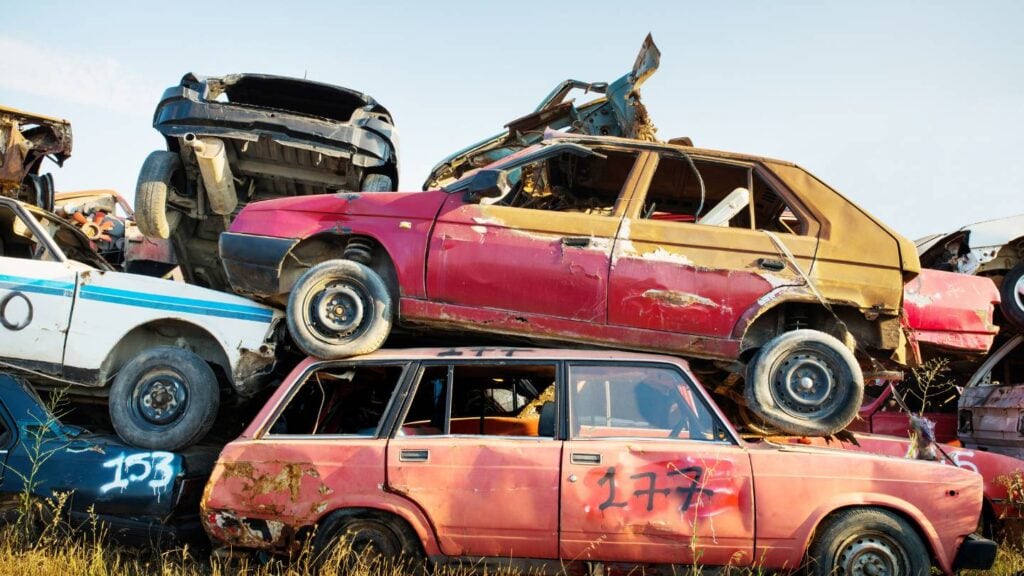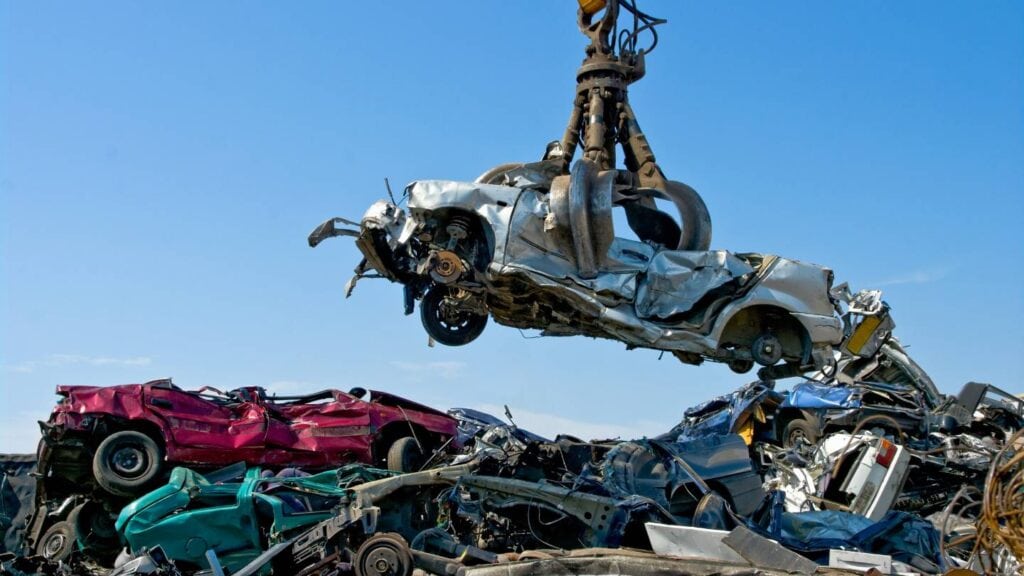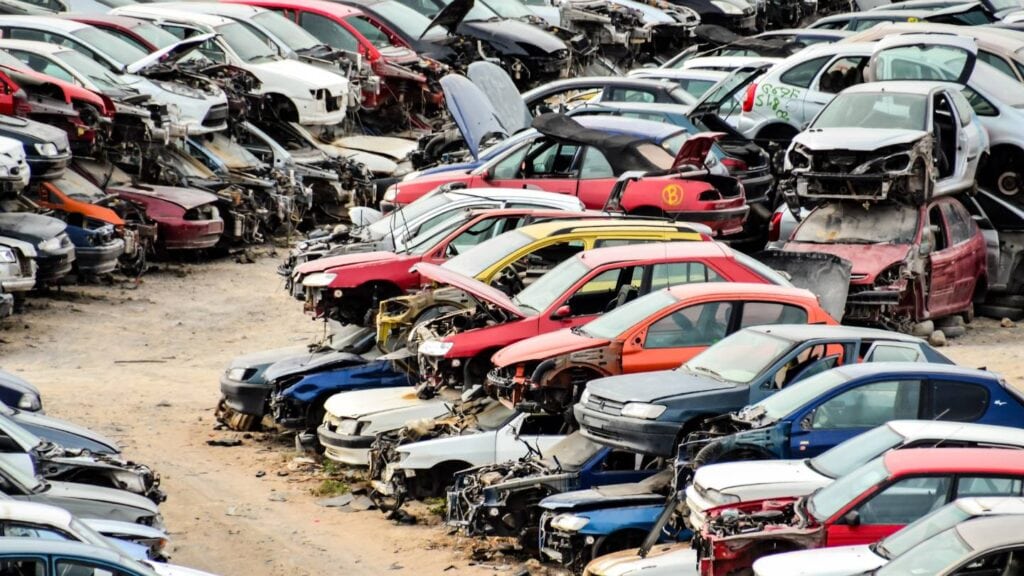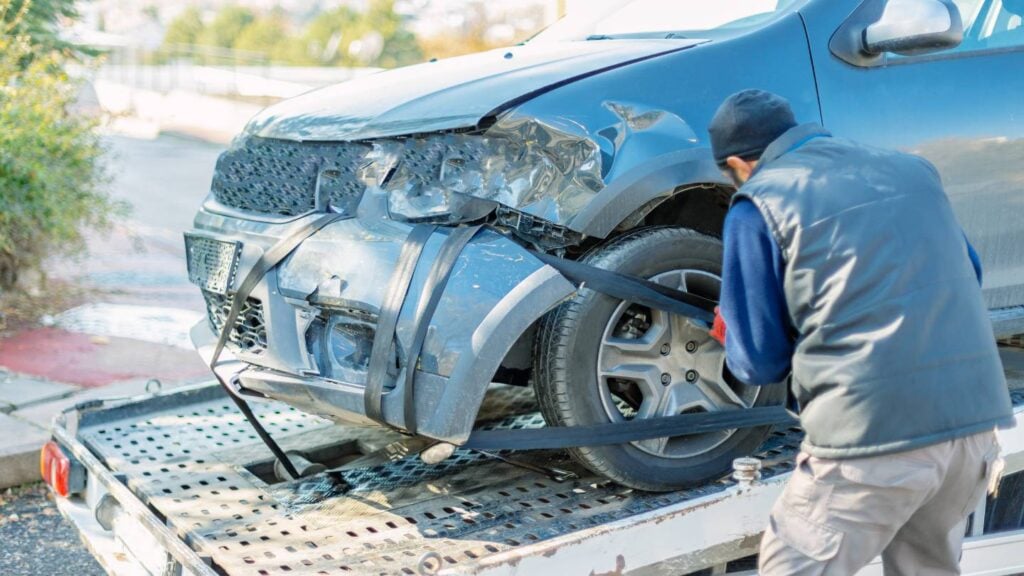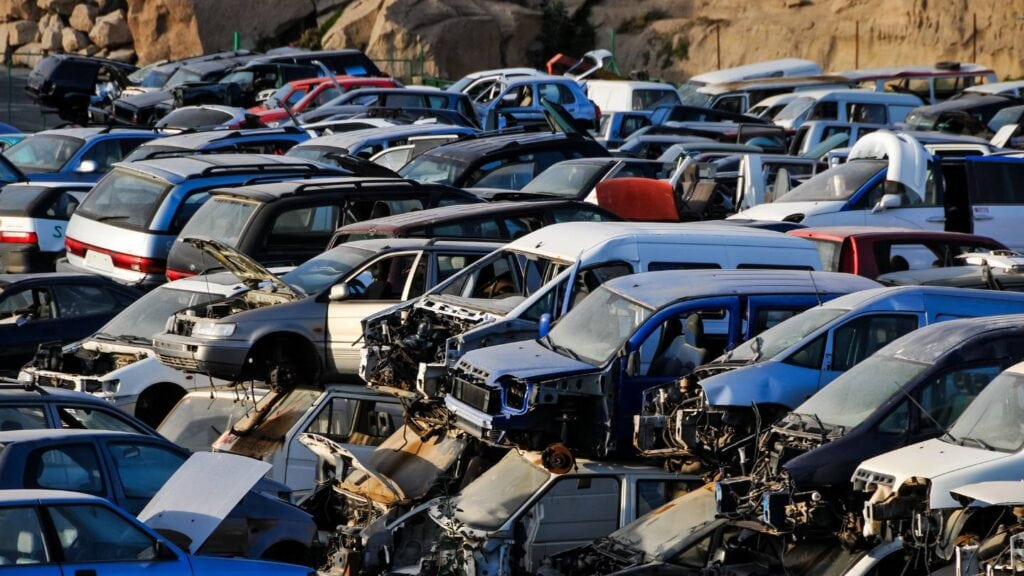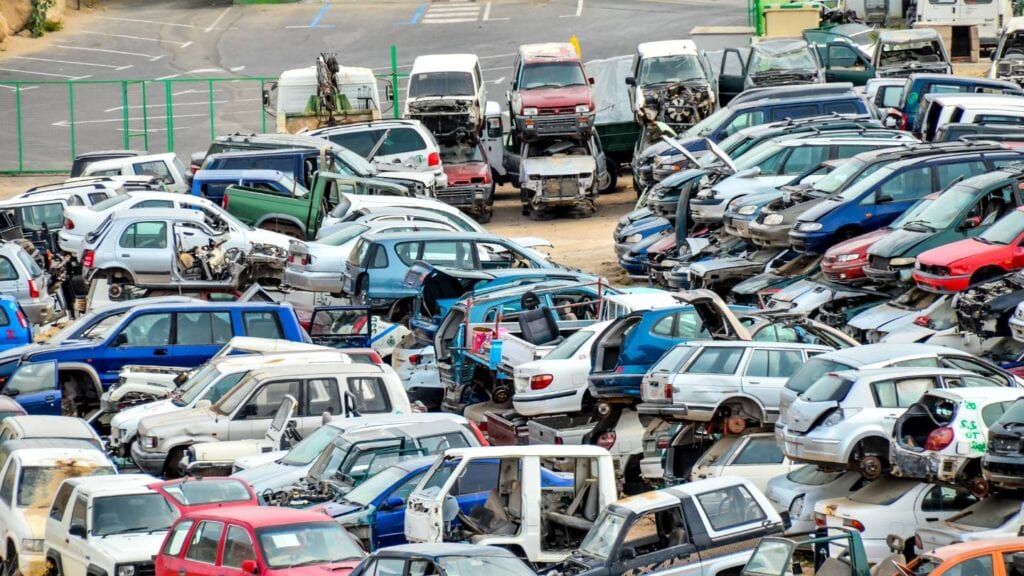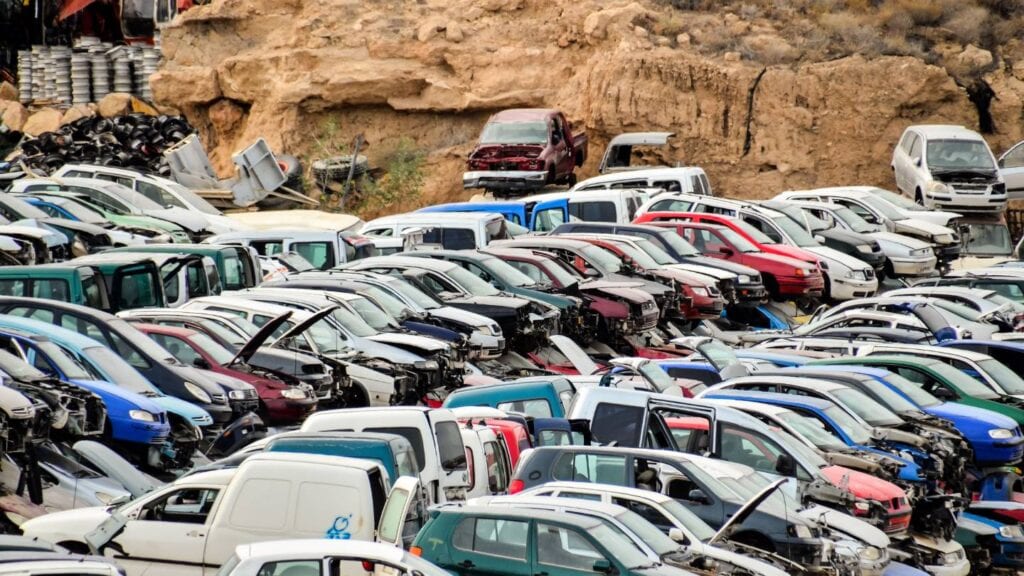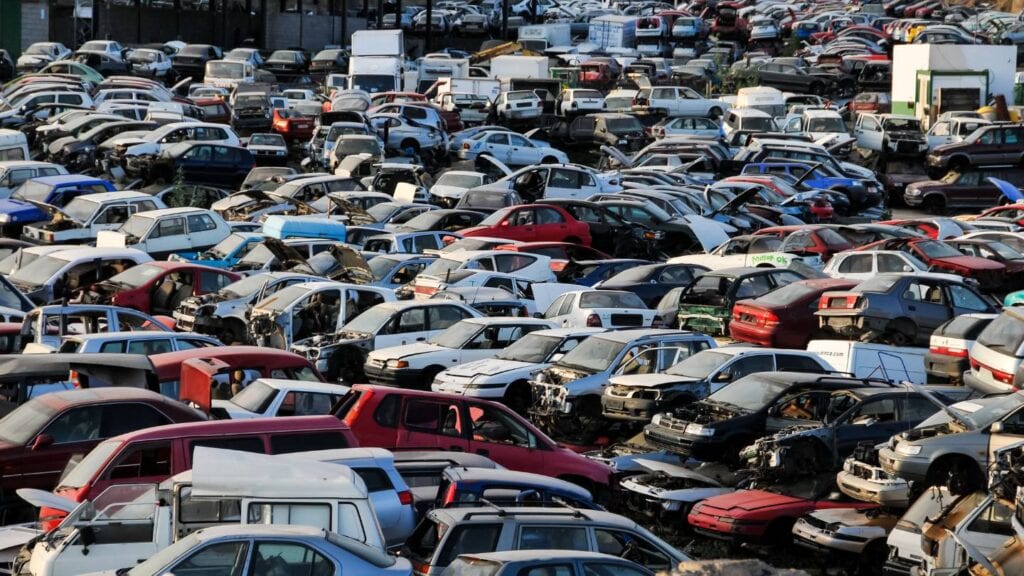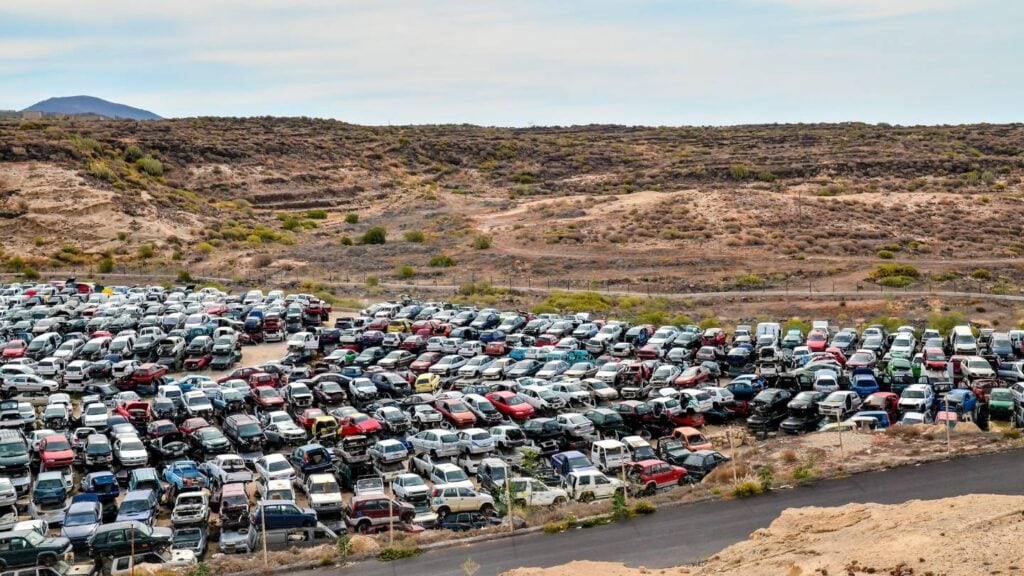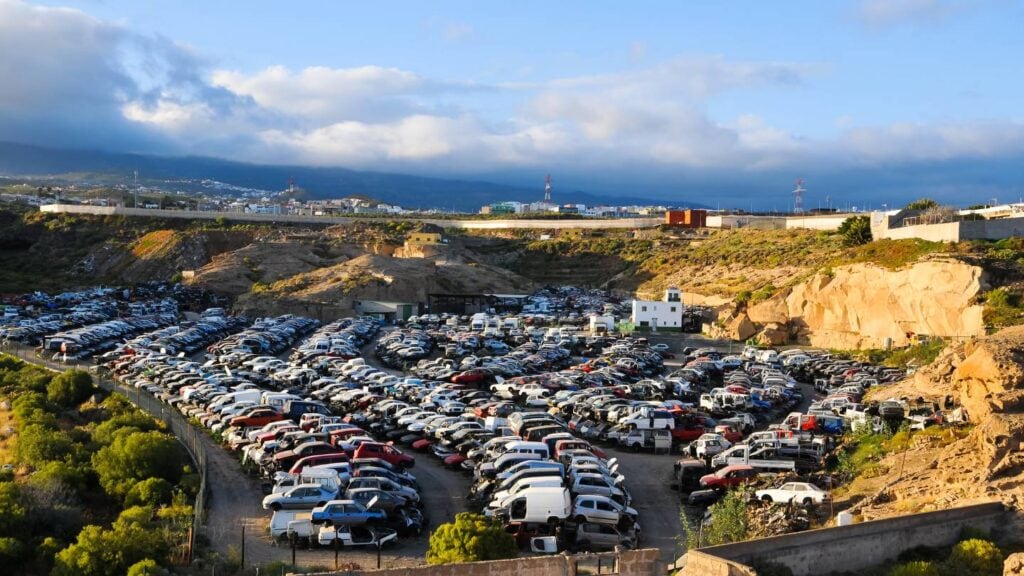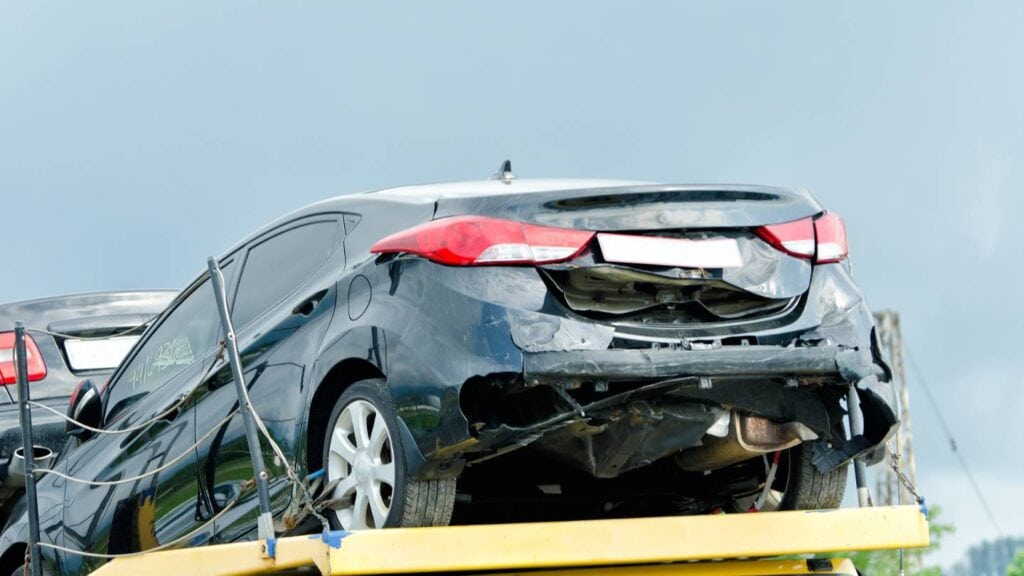You can easily get extra money by selling your old car to a scrap yard. However, keep in mind that the worth of a junk car can be affected by a number of factors. When selling a car for scrap, the buyer is more interested in the car's scrap value than the car's trade-in value.
How much do you think your car is worth? The answer to this question changes depending on whether you're selling to a scrapyard, making a trade, or selling to an individual.
Your vehicle's worth in a scrapyard will be determined primarily by the market for its metal components. The vehicle's construction includes metals like steel, iron, and aluminium. Your junk car is worth more than you think! Get the best offer with our cash for cars program today!
Production must keep up with the rising demand for metal. Metal prices fall because of the inverse relationship between production and demand. Steel is the most valuable metal in a junk car, so yards that buy them to dismantle them focus on purchasing them. About 65 per cent of a car's mass is steel, making steel costs the most significant factor.
Factors That Affect The Value Of Your Junk Car
If your used car has been collecting dust in the garage, you may be curious about its resale value. The good news is that scrap yards will pay you for your old car in exchange for its functional components and metal frame.
A scrap vehicle's value is determined by several factors, some of which are listed here.
Metal Scrap Prices
Prices for scrap metal shift daily due to market forces that affect demand and supply. Aluminium and steel make up the bulk of a car's mass.
Therefore, your junk car's value heavily depends on the current prices of these two metals. In addition, the state of the global economy can influence metal prices, the price of energy, and the frequency and severity of natural disasters.
The prices also change depending on where you live. For instance, if a country raises duties on steel and aluminium imports, that might push businesses to source these metals from domestic recyclers.
In this situation, you can get top dollar for your old car. When there is a slowdown in production everywhere, scrap metal prices rise everywhere.
You should sell your car when there is a high demand for scrap metal. Fortunately, you can check metal prices using a number of apps and websites before you start looking around for deals. Refrain from assuming the current price level will be maintained indefinitely, even if favourable.
Condition And Model
Your car's worth is heavily influenced by age, make/model, and manufacturer. Therefore, you can save a lot of money by purchasing a newer model instead of an older one.
Your car's condition is also a major factor in its worth. Automobiles that can be dismantled into easily marketable parts are a priority for scrap dealers. Although recyclable, the demand for older vehicles is low, so many parts are no longer in working order.
A car not too old and in good shape will get a better price from scrap merchants than an old, rusty vehicle far past its 12-year average lifespan. Your old car may be worth as much as 40% in parts as it did when you bought it.
Of course, you could get more money if your car is a more desirable make and model or its parts are in high demand.
The price you get and what the recycler does with your old car depend on its condition.
It's worth a lot more if the car is still operable and has all its essential parts. However, the dealer may decide that repairing your vehicle is not cost-effective and instead sell off its usable components.
The value of your vehicle may drop if you need expensive parts like the engine, steering rack, or transmission. The absence of such parts reduces your vehicle's resale value because of their high scrap value.
Minor dings and dents can be repaired to restore the vehicle's functionality. However, keep a car from running in your garage for a short time. For instance, metal components that rust quickly lose much of their worth.
The Car's Age
Another major part that can play a role in determining a vehicle's value is its age. In general, the value of an automobile decreases as its age advances. However, there are a few notable departures from this general rule. For instance, despite their advanced age, certain antique automobiles can still be worth significant money.
Car Weight
Your car's expected price can vary widely depending on a number of factors, one of which is its weight.
For instance, if you intend to sell your automobile to a junkyard that bases its quote on the car's weight, you should expect a larger quote, the heavier your car is.
It stands to reason that an SUV, which contains more metal, would fetch a higher price than a tiny car, which contains less metal in terms of monetary value you can get for junking the two vehicles.
Mileage
If a car has a lot of mileage, the parts could be in better shape.
This means the higher your annual mileage, the less money you will receive. Scrap metal buyers would offer more cash for a vehicle with lower mileage.
A lower mileage usually means the junk car's components are still in decent shape. Buyers of scrap vehicles are willing to pay a fair price for a low-mileage vehicle because they can recoup some of their investment in the vehicle's parts.
Location
The car's location is another factor that can affect its worth. Vehicles in some regions may fetch higher prices than those in others. Your junk car's value may increase if you reside in a region with higher demand for used automobiles than the supply.
The market for a particular year, make, and model of a junk car can affect its market value. As a result, the demand for your car's replacement parts in your region may determine how much money you make.
In addition, if you live a significant distance from your prefered junkyard, towing expenses can also add up fast. Therefore, when looking for a scrap dealer, it's best to stick with nearby junkyards to save money on shipping.
Seasonality
The value of a junk car may also be affected by the time of year it is sold. For instance, during the warmer months, the value of convertibles may increase, whereas during the colder months, the value of four-wheel-drive vehicles may increase.
Previous Maintenance
Depending on its condition and how well you've maintained it, you may get more or less for this automobile. Even though this is a factor in the value of your vehicle, you can increase it by showing proof that you have maintained it regularly and getting the best price for junk cars in your area.
Car Demand
We already mentioned that the value of particular automobiles some manufacturers make is steady no matter where you live. The need for these cars to serve as replacements for other vehicles is constant. As a result, if you own one of these automobiles, you can expect a much higher price for your junk car.
Even if your vehicle isn't in high demand, you will still get a good price. As we mentioned earlier, we show you everything that could change the amount of money you get for your junk car. Therefore, to assess your junk car accurately, you must consider all relevant factors simultaneously.
How To Maximise The Value Of Your Junk Car
If you're going to sell your junk car for the money, you should get as much as possible for it. To get the most money for your old car, consider these suggestions.
Clean It Up
Having a clean car is always preferable to having a dirty one. To show the true condition of your car to potential buyers, you should give it a thorough wash and wax. Removing garbage or debris from the car's interior and giving it good vacuuming is also a good idea.
Don't Put Off Selling For Too Long
To maximise the profit from the sale of your car, you should do so as soon as possible. You will get less money when selling your junk car if you wait too long to get rid of it. In addition, the value of your vehicle remains even if it is damaged beyond repair, and reusable components can deteriorate over time, so it's best to get it off the road as soon as possible.
If your old car is sitting in the garage, the rubber parts will dry out and crack due to rust. To make matters worse, leaving your beater in the backyard exposes it to the elements, which can lead to rust, cracks, and other damage from the sun, rain, and snow.
Make Minor Repairs
When putting your car up for sale, make sure it is in good working order. This includes replacing burned-out bulbs, tightening loose door handles, etc. Doing so will demonstrate to potential buyers that you care about keeping the property in good condition, which will increase its value.
Highlight Specific Features
Showing off your junk car's best attributes is another way to boost its sale price. You might be surprised to learn that there is a sizable market for vintage automobiles, especially those with unique details. Collectors of older cars might be considering adding yours, after some cosmetic work, to their collections.
For instance, if your car has a special feature that is only available for a limited time, be sure to call attention to it. Examples of some of these include:
- Built-in car phone;
- Mirrors mounted on the fenders;
- Windows with vent glass;
- Hand-cranked windows;
- Seats on the front bench.
Check The Tire Pressure And Fluids
Check the oil, coolant, brake fluid levels, and tyre pressure before advertising your junk car for sale. This will ensure that any test drives with potential buyers will go smoothly and without incident.
Possessing receipts for maintenance and repairs can show potential purchasers that you've taken good care of the vehicle throughout the years, increasing the likelihood that they'll want to buy it in its entirety rather than dismantle it for parts or scrap metal.
Since buyers will be able to inspect the vehicle in person after the sale has been finalised, it's crucial to post plenty of high-quality photos of the interior and exterior on the online ad (if applicable). In addition, include images showcasing the vehicle's customizations and other special features. As a result, potential buyers will better grasp the product or service they are considering purchasing, giving you more leverage in negotiations.
Conclusion
The market for its metal components, the health of the global economy, and the frequency and severity of natural disasters are just a few of the variables that might affect the price of a trash automobile.
Yards that buy junk cars to deconstruct them primarily purchase them for the steel they contain. The market, the global economy, and natural calamities all have an impact on the price of metal scrap, and those factors all change on a daily basis.
When a government increases tariffs on steel and aluminium imports, or when there is a global slowdown in production, prices fluctuate. A car's worth depends mostly on how old it is, what type it is, and whose company made it.
If the vehicle is not too old and in good condition, its parts value could be as high as 40 percent of its original purchase price. The car's value increases if it can be driven and has all of its original components.
The car's resale value could be affected, however, if it requires costly repairs. While repairing cosmetic damage might restore a vehicle's use, the age, size, mileage, and location of the vehicle all play a role in determining its market worth. The market value of a car might fluctuate depending on its age, condition, size, mileage, and location.
Even in their old years, antique automobiles can be valuable investments.
The worth of a car might vary depending on its condition, age, mileage, and location. A trash car's worth can fluctuate depending on a number of circumstances, such as the availability of spare parts, the time of year, the quality of the vehicle's upkeep, the number of similar vehicles on the market, and the legality of the title.
You should think about how much money you can make off of a trash car before you try to sell it.
Keeping the automobile clean, not waiting too long to sell it, and performing any necessary small repairs will all increase its resale value. Before putting your automobile up for sale, give it a good cleaning, don't wait too long to sell it, and fix any small problems it may have.
The methods described here for making a junk car more valuable are the meat and potatoes of this article.
These include things like posting high-quality images of the interior and exterior, checking the tyre pressure and fluid levels, and fixing any broken bulbs or loose door handles.
You should also provide repair and maintenance invoices to demonstrate to purchasers that you have cared for the vehicle properly. Finally, to give buyers more bargaining power, it's crucial to upload numerous high-quality images of the interior and exterior to the internet ad.
Frequently Asked Questions about Junk Cars
There are several ways to increase the value of a junk car, including:
- Repairing or replacing any mechanical parts that are in good condition
- Cleaning and detailing the car's interior and exterior
- Removing any aftermarket modifications or custom parts that are not in demand
- Keeping the car's title and registration up to date
- Providing thorough documentation of any repairs or maintenance that have been done on the car
- Researching the value of the car and getting quotes from multiple buyers to ensure you get a fair price
- Selling parts individually if they are in high demand or valuable.
You can find out how much your junk car is worth by researching online or contacting a reputable junk car buyer in your area. Many junk car buyers have online tools that allow you to estimate your car's value based on its make, model, and condition.
You can also compare quotes from multiple junk car buyers to understand what your car is worth. Additionally, you can consult pricing guides for junk cars or seek the advice of a professional mechanic to help you determine the value of your car.
The presence of aftermarket modifications or custom parts can increase the value of a junk car, depending on the demand for those parts. If the modifications or custom parts are in high demand, a junk car buyer may be willing to pay more for the car.
However, if the modifications are unique or not in demand, they may not increase the car's value. Therefore, it's important to research the value of aftermarket modifications or custom parts before attempting to sell a junk car with those features.
Yes, the availability of certain parts can impact the value of a junk car.
For example, parts in high demand or rare can increase the value of a junk car, while parts commonly found or not in demand may decrease their value.
Some examples of high-demand parts include engines, transmissions, and body panels, while common parts may include doors, windows, and standard interior components.
In addition, the availability and demand for specific parts can vary depending on the make and model of the junk car.
The presence of rust or other damage can drastically reduce the worth of a junk car. Rust can cause structural damage to the car's body, making it unsafe to drive and reducing its overall value. Other forms of damage, such as dents or scratches, can also decrease the value of a junk car by making it less visually appealing and potentially more difficult to sell. Generally, a junk car with minimal rust and damage will be worth more than one with extensive damage or rust.

